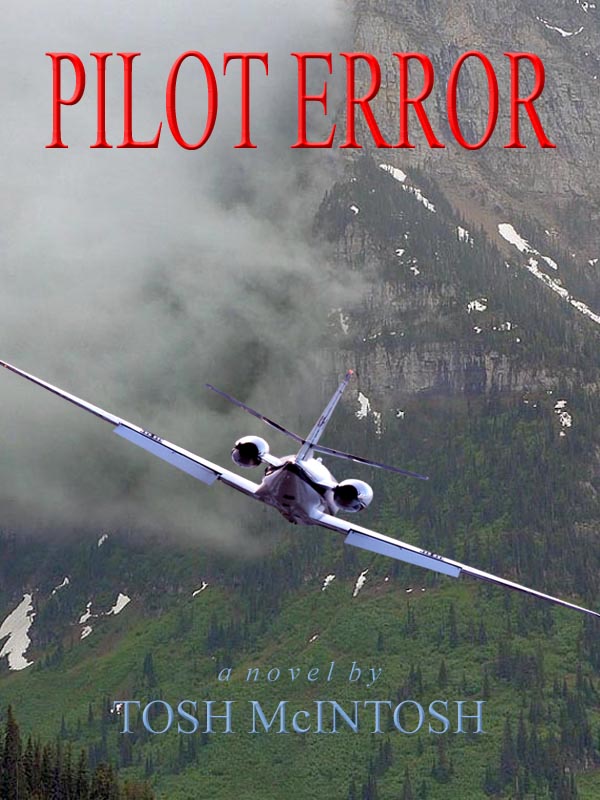There’s probably no more than a handful of my personal friends and acquaintances who know I lost my dad in an airplane crash when I was seven. I mean, why would they? It’s not like I’m going to begin casual conversations with that tragic bit of personal history.
He was at the controls when it happened. The NTSB called it pilot error. Not a comforting term, especially for a kid who worshiped his father. I’m supposed to accept that my hero made the mistake that killed him? To heck with that. It’s been almost thirty years and I still can’t wrap my mind around it.
In contrast, I doubt there’s a single member of the Aviation Division of the NTSB who doesn’t know all about it. I mean, why wouldn’t they? After I graduated from USC with a degree in aviation safety, I used my newly acquired knowledge to evaluate every word of the accident report, visited the crash site, hunted down the few living eyewitnesses and systems experts who examined the original evidence. Ultimately I came up empty-handed. But I still didn’t believe it. Still don’t.
I think the investigators took the easy way out. Not maliciously, or with any intention of making it appear to be something it wasn’t, but as a result of the prevalent culture in the NTSB. Our charter today is the same as it was then, to search for clues with only one objective: determine cause and thereby enhance flight safety. But what if we can’t find anything definitive? Do we give up and write Undetermined on the bottom line? Or are we so dedicated to our mission that we consider that conclusion to be a failure?
Aviators, and I’m also one of those, have a saying about that:
They always try to blame the pilot. Especially when he’s dead.
As an investigator, I know that’s not true, but I understand the sentiment. And over the years it’s influenced my professional behavior, especially after I became a qualified Investigator-In-Charge. I run inquiries my way, and that means determination of pilot error is never made without direct evidence supporting that conclusion.
Has my attitude, fueled by personal tragedy no less powerful now than the day my father died, caused problems? Oh, yeah. No fisticuffs or anything like that, but I’ve got a rep, no doubt about it. For being a hard ass, I suppose, but when it comes to a job like this, we all have to be on the same team, all the time. I run a tight ship. Which means that when I screw up, like I did about five years ago, other team members never miss an opportunity to remind me.
It was an ugly one. They all are, of course, but thankfully not like this. Most of the pieces we recovered weren’t much larger than my hand. And they were crispy. Post-crash fire will overcook the physical evidence every time. That forces an investigation to concentrate on all that’s left, like human factors.
Did somebody make a mistake? A mechanic, maybe. We sift through the logbooks searching for evidence that inspections might have been missed, or the wrong parts installed, or weight and balance calculated incorrectly. If the pilot was in contact with Air Traffic Control, is there anything in the voice recording or radar tracking tapes to indicate that the pilot or the controller did something to cause the crash?
And in this case, the investigation that set me up for the big investigator error, the pilot had a reputation as a tee-totaling straight shooter who approached flying as something akin to a divine responsibility. This guy would never take any chances in the air and always prepared meticulously for every flight. And when I heard the rumblings among the team members to indicate informal agreement that there might be some rot under the exterior facade of his reputation, I made a fool of myself by cracking the whip a few times.
The message was consistent with my reputation of being very reluctant to insert the possibility of pilot error into the report. So when the autopsy protocol, through toxicology from a small amount of human remains, finally documented the pilot’s blood alcohol level as that of a rip-roaring drunk, the truth slowly emerged, reluctantly, from the one person who knew what had happened the night before the early-morning crash.
According to a $1000-per-night “escort,” over a 12-hour period the pilot had broken every vow that supported his “Mr. Clean” external persona. He’d just made a business deal with the potential to catapult him from doing okay to trading in his light piston-twin for a business jet. The impromptu celebration cost him his life and set me up for eating a bit of foul-tasting crow.
I still feel the same way about how we address the possibility of pilot error, but I’ve dismounted from the high horse.
Or so I thought . . .


